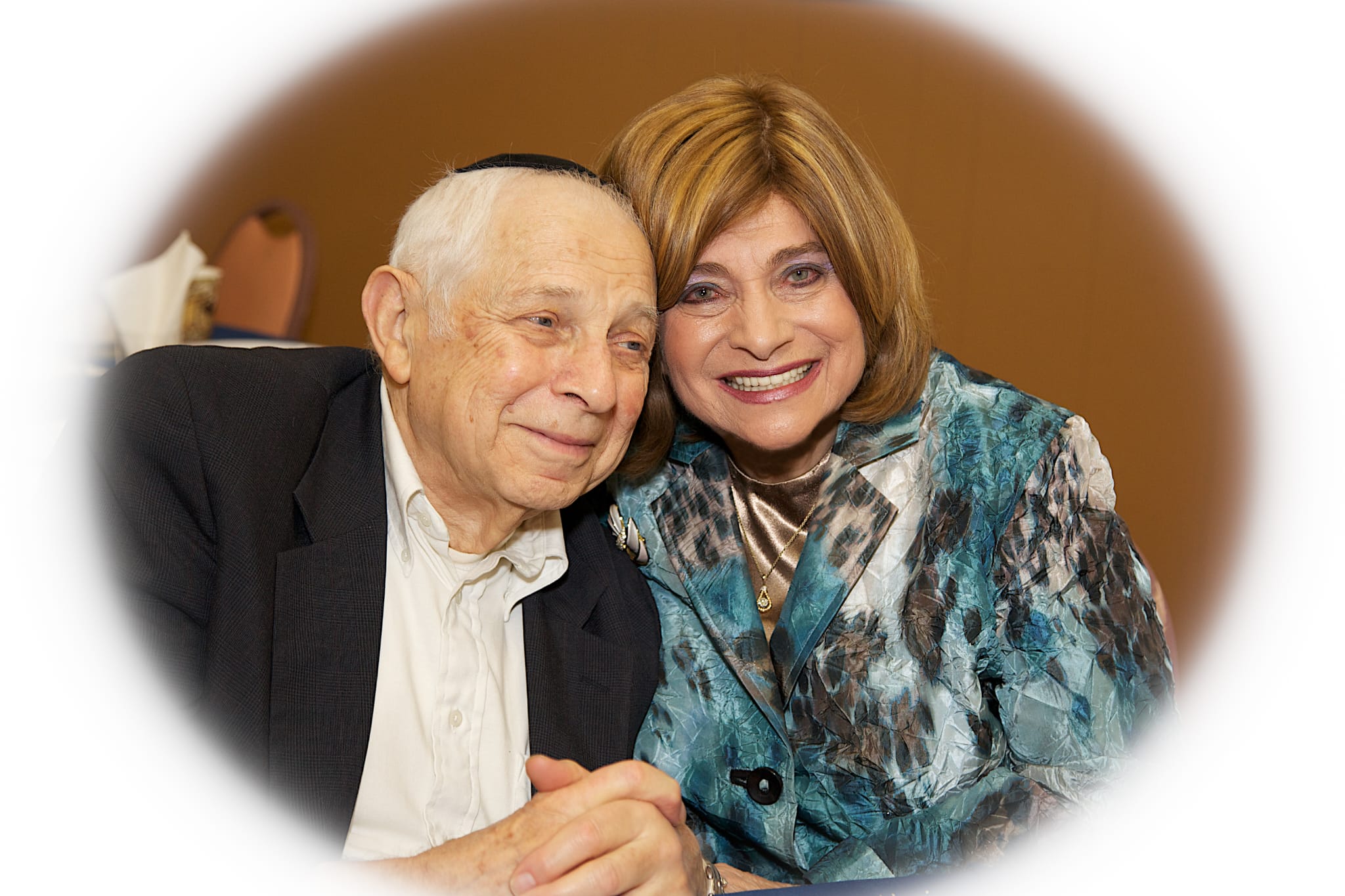
Our rabbis
ask: “Why does the Torah begin with the letter “beyt”? If I would have asked this question of Mr. Sam Broder, a”h, the husband of Mrs. Leni Broder, a”h, he might have responded with something
like: “That’s easy. The Torah begins with the letter “beyt” because the first word is Bereishit.”
Or he might have said, “The Torah starts at the beginning, and beginning begins
with a “beyt.”
Our
rabbis offer a different approach. The Kli Yakar, in his Torah commentary, writes
that the Torah begins with a “beyt”
because the letter “beyt” is spelled
“beyt,” “yud,” “taf,” forming the
word bayit, or home. Perhaps what the Kli Yakar is teaching
is that if you want to know a person’s Torah, take a look in his or her home.
It
is almost impossible to separate the Broders from their home on Woodcrest
Avenue. As our rabbis assert: “Tov latzadik
v’tov l’shcheino (good for the tzadik, good for his neighbor). The image is
clear to anyone who spent time in this righteous home: Mrs. Broder and her
husband sitting at their couch or dinner table, welcoming guests, telling jokes
and stories, serving large and delicious meals, giving divrei Torah, and making everyone feel comfortable. They made it
look easy. But if it is really so easy, why doesn’t everyone do it?
I
did not know Mrs. Broder as a gifted teacher, a devoted mother, or even as one
of the builders of our Baltimore community. She was not one to discuss her many
accomplishments. I knew her only as a good friend and, at times, a confidante.
I
was introduced to Mr. and Mrs. Broder by a mutual friend. I was a regular at
their Friday night Shabbat meals for many years, sharing these evenings with
many other guests. These guests were some of my first friends in Baltimore, and
it is impossible for any of us to recall those times without smiling and
sharing stories. At her home, we observed Torah in action: hachnasas orchim, bikur cholim, ma’asim tovim. There is merit in
spending time with exemplary hosts. I believe that the Broders have a cheilik (portion) in any good that comes
from me or my family.
If
during a Shabbat meal the conversation drifted to negative speech, Mrs. Broder
would simply put her hands over her ears, hum a melody, and request a song. She
disliked conflict and insisted on peace. Rabbi Porter once taught me that there
is a distinct difference between an ohev
shalom and a rodef shalom, one
who loves peace and one who pursues peace. Everyone loves peace, but few will
work for it. Mrs. Broder was a rodef shalom. She was an expert listener who saw the good in
everyone and made the best of challenging situations.
Placed
side by side, Mr. and Mrs. Broder were an unrivaled team, capable of bringing
more belly laughs than the most experienced comedy duos. I am thinking of Carl
Reiner and Mel Brooks performing their 2,000-Year-Old-Man routine. “In all of
your years,” asks Reiner to Brooks, “who was the most influential person you
ever met?” To which the 2,000-Year-Old-Man replies: “Jewish, or anyone?” The
Broders were Jewish influencers before there were influencers, bringing Torah
and kindness to everyone who had the good fortune to be in their presence.
Mrs.
Broder’s stories were legendary and often followed a distinct rhythm. They
would start, of course, with Mrs. Broder simply minding her own business,
followed by the intrusion of an unpredictable occurrence or mishap that could
only happen to her. But as the story evolved, the listener understood that she
had a higher purpose in mind. Her comic misadventures were only misdirection, a
technique to reveal the virtues of others: the wisdom of her husband, the
kindness of her family, the good midot
of her students. Everyone thrived under her watch.
Mrs.
Broder flew to Ontario to attend our wedding and made us sheva brachas upon our return. She even managed to get locked in
the house where she was staying, unintentionally waking everyone when she tried
to quietly exit in the morning to catch her plane. Of course, she was simply
minding her own business. But the story, in her telling, was meant only to
emphasize the tremendous hospitality of her hosts, a chashuva family extending warmth and kindness throughout her stay
in Hamilton. She was a baalat chesed
appreciating chesed in others.
I
believe that there is a Yiddish expression that asserts two different types of
people in this world: those who take life and those who give life. Mrs. Broder
was a giver, and she was a natural. We left her presence feeling more refreshed
than when we started. Not everyone is blessed with this ability. And not
everyone blessed with this ability uses it to make the world a better place. Mrs.
Broder had a gift and brought joy to all who had an opportunity to know her.
We
have a natural impulse to draw closer to people who give us life. One testament
to Mrs. Broder’s giving nature is a home that was filled with family and
guests. Another is the many visitors who came to see her after she had moved into
her daughter’s house. We came to provide comfort, yet we left oddly comforted. We
didn’t even know we needed the comfort! Of the many tragedies of her death is
that she still had so much more to give. May her memory be a continual source
of blessing for our community.






